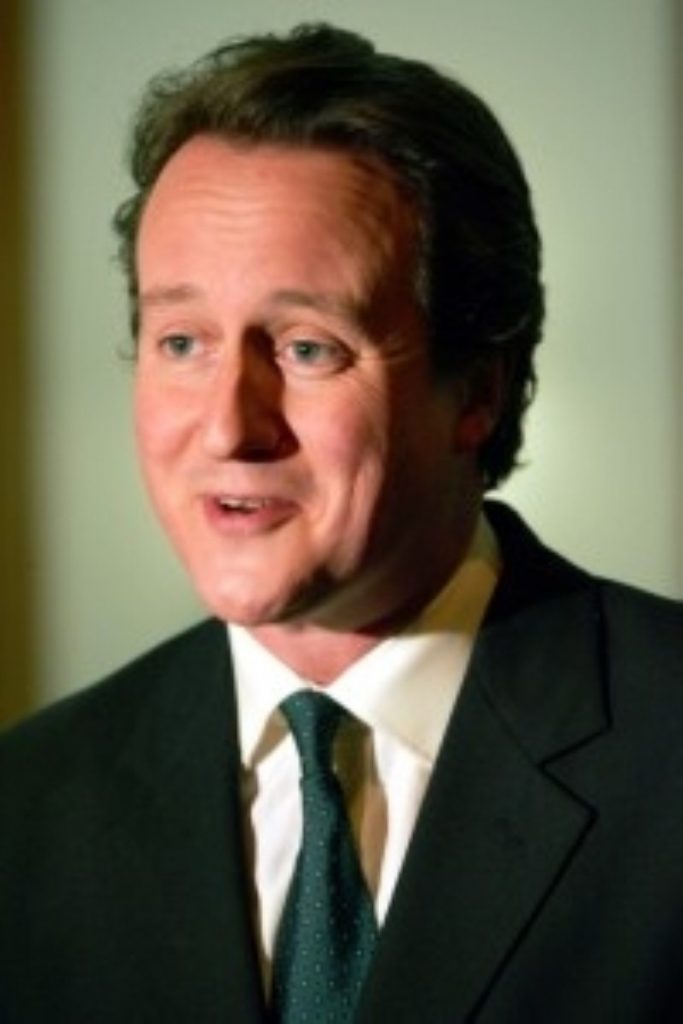Cameron vows to scrap Human Rights Act
Conservative leader David Cameron today said the Human Rights Act needed replacing to help keep Britain secure and protect its freedoms.
Mr Cameron believes the existing act, which incorporates the European Convention on Human Rights, has “hampered the fight against crime and terrorism”.
He wants to see it replaced with a British bill of rights that would define the rights set out by the convention in “clearer and more precise terms”.
Attorney general Lord Goldsmith criticised Mr Cameron’s proposal, calling it “misconceived” and “dangerous”.


In a speech to the Centre for Policy Studies, Mr Cameron detailed his plans for a bill that would set out people’s rights, enable them to be protected in court and strengthen the fight against crime and terrorism.
“Change is needed to protect both our security and freedom more effectively,” he said.
“The Human Rights Act has made it harder to protect our security. And it’s done little to protect some of our liberties. It is hampering the fight against crime and terrorism. And it has helped to create a culture of rights without responsibilities.”
On the options for change, Mr Cameron said there was a case for abolishing the Human Rights Act and doing nothing else, but that this would not solve the problem of terrorism, and would be a step backwards on rights and liberties.
The right solution, he continued, would therefore be to create a British bill of rights “that balances rights with responsibilities”, and that defines the convention more precisely.
“Greater clarity and precision would allow those rights to be enforced more easily and effectively in circumstances where they ought to be protected but it would become harder to extend them inappropriately as under the present law,” he said.
But the attorney general said that Mr Cameron’s approach was “quite wrong”.
Lord Goldsmith told BBC Radio 4: “I think he is muddled and I think the idea is misconceived.
“I think indeed it’s dangerous, because I think it would lead to more, not less, confusion about the best way to strike the balance between protecting public and individual liberties.”
Liberal Democrat constitutional affairs spokesman Simon Hughes welcomed parts of the proposals but stressed that Britain should still be party to the European convention.
“David Cameron’s tentative suggestion that the Conservatives may now be converted to a bill of rights for the UK is welcome.
“The Liberal Democrats and many others have campaigned for years for a British bill of rights and a written British constitution.
“But David Cameron should not imply that we could give up being party to the European Convention on Human Rights, which is as much a product of British law as any other.”
Mr Cameron’s comments come after the prime minister Tony Blair last week said that the criminal justice system was in need of “rebalancing” in favour of the victim.
While the Tory leader agreed with Mr Blair that there was a need for new legislation to be introduced, he stated that perhaps the Labour government had missed its chance to do so.
He told Sunday AM: “We do need changes. I think Tony Blair’s problem is frankly he has had nine years, three big majorities, and 54 pieces of criminal justice and Home Office legislation to sort out these problems.”
The Human Rights Act, which makes the European Convention on Human Rights enforceable in UK courts, was a key policy of the first-term Labour government.
It requires all UK laws to comply with the convention, which sets out key rights such as prohibition of torture and slavery, the right to a fair trial, and the rights to freedom of thought and freedom of expression.












